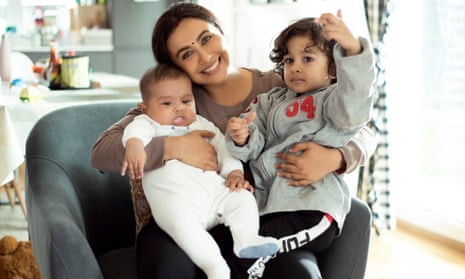This epic Hindi-language testament to tenacious maternal love has been neatly timed for release over the UK Mother’s Day weekend, although it’s based on a true story which began over a decade earlier. Sagarika Chakraborty had already been living in Norway for four years when, in 2011, her two young children were taken by the state for no apparent reason. Rani Mukerji stars as this latter-day Mother India, renamed Debika Chatterjee for the film. It’s a dowdy role for the usually glamorous Bollywood star, but then any averagely vivacious human being would stand out against this grey Norway of municipal buildings and expressionless bureaucrats.
Why were Debika’s children taken away? The official list of charges – co-sleeping, hand-feeding, applying kohl – amount, on the face of it, to simple cultural differences, not child abuse. According to Debika’s husband (Anirban Bhattacharya) though, it’s all her fault: she’s too emotional, too dramatic, too unwilling to integrate. As the film progresses, Debika is increasingly alone in her battle against a mighty foreign state. It’s not just Mrs Chatterjee v Norway, but Mrs Chatterjee v The In-Laws, Mrs Chatterjee v The Mean Mums and Mrs Chatterjee v The Entire, Legally-Enshrined Patriarchy.
In fact, the real-life Debika’s ordeal was part of a larger issue inside Norway’s child welfare services (according to one 2016 media report, children with a foreign mother were four times more likely to be forcibly taken from their families). This is hinted at several times, but the film’s Norwegian characters are too flatly drawn to offer much understanding of how factors like institutional racism and human error might have combined to bring about this nightmare.
When the action moves to India, the home advantage is instantly clear. We finally get a vivid villain in the form of Debika’s opportunistic brother-in-law (Soumya Mukherjee), while Balaji Gauri as her new lawyer is a late injection of righteous passion – much-needed, both for Debika’s case and the film itself. But it’s too little too late to constitute a compelling courtroom mama-drama. Even a woman as sympathetic and strong-willed as Mrs Chatterjee can’t carry a two-hour plus film alone.
